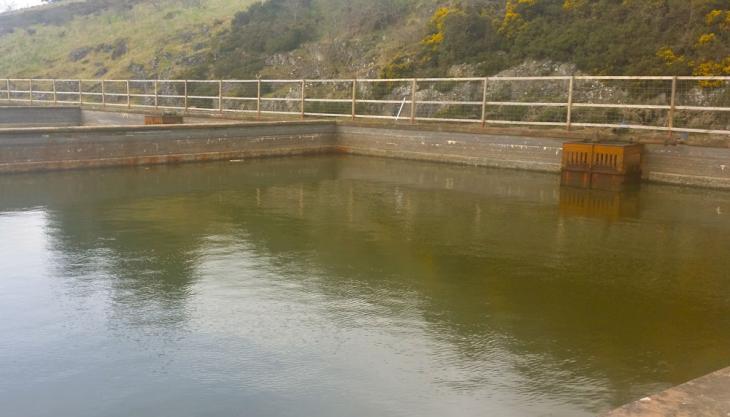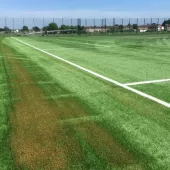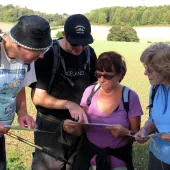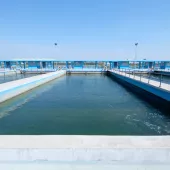Something in the water at Glenfarg

Garside Sands supply 2,800 tonnes of new Slowfil sand to Scottish water-treatment works
GARSIDE Sands have successfully supplied more than 2,800 tonnes of their pioneering Slowfil sand to Glenfarg Water Treatment Works, as part of an ongoing programme to improve its water quality.
The Glenfarg facility – the only one of its kind left in Scotland – supplies drinking water to more than 180,000 customers in the Fife area, and uniquely purifies water using the traditional method of slow sand filtering.
Garside Sands, part of Aggregate Industries, were able to fulfil the requirement for a high-quality sand that would meet the acute industry standard for size, grading and colour required to help with the production of safe drinking water.
The process of slow sand filtering takes place in a sand-filled container, in which the sand is initially submerged in water. This allows the top layer of wet sand to gradually develop a biological ‘film’ made up of living organisms such as algae and bacteria. Once this has occurred the water filtration process can begin.
The surface biofilm (top layer) provides the most effective purification as the living organisms essentially ‘eat’ or attach to pathogens in the water, effectively stopping them from flowing down through the sand.
As the water continues to travel down – under the natural pull of gravity – the underlying sand continues to provide a level of biological treatment, which lessens as the water reaches the bottom-most layer of sand.
Brian McCulloch of Ross-Shire Engineering, who installed the system at Glenfarg, said: ‘Due to the specialist nature of what we do, and the implications if done incorrectly, it was crucial to have a highly accurate specification of sand.
‘Garside Sands were fantastic in working closely with us and understanding what it was that we needed. They were able to provide a finely graded sand which offered the right level of permeability to manage the removal of micro-organisms and, so far, we are really pleased with the result.’
Grace Cosby, sales representative at Garside Sands, commented: ‘Slow sand filtering was a method adopted back in Victorian times and, despite the revolution in technology, is still considered one of the most effective forms of water purification today.
‘Although less common in developed countries, slow sand filters still supply safe drinking water for some highly populated boroughs in the UK – including some areas in London and Scotland.
‘If the sand is of high quality, we know that these filters can produce water that has a 90–99% bacterial cell count reduction. As such, we ensured that we spent the right amount of time in developing a sand that would help to both enhance and maintain the quality of water that slow sand filters will continue to produce for years to come.’









